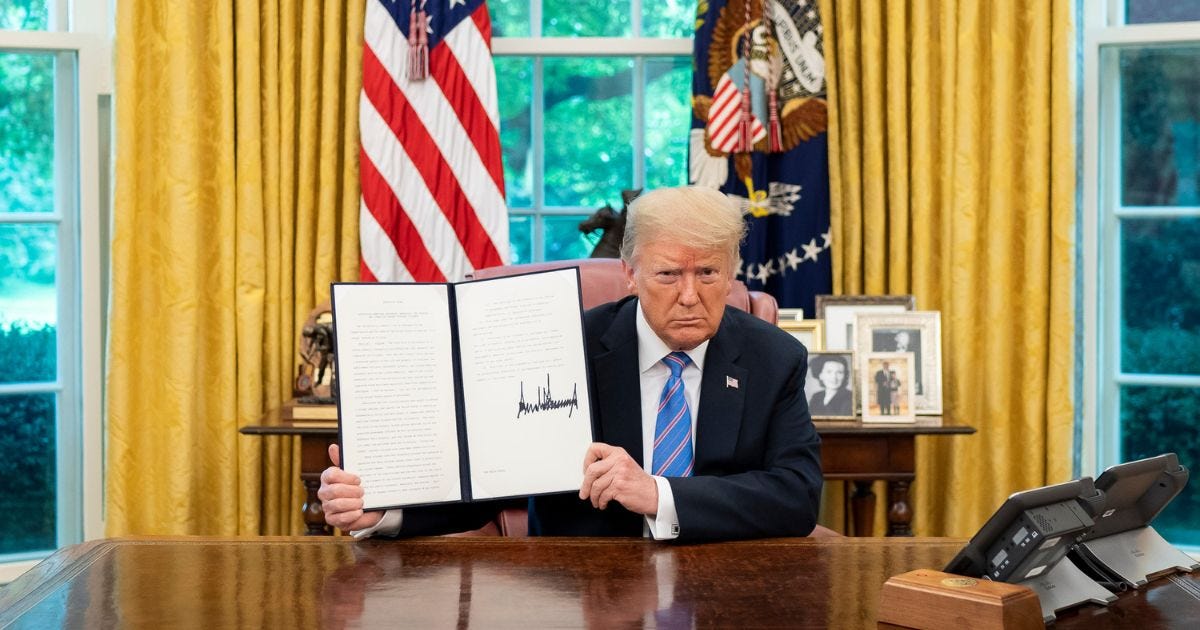Does Speaking English Define Being American? National Debate Erupts
Does Speaking English Define Being American? National Debate Erupts Trump’s policy revives cultural tensions over assimilation, identity, and language diversity.
Cultural divides over language policy and national identity emerge as President Donald Trump announces an executive order to make English the official U.S. language for the first time in the country's history.
What's Happening
President Donald Trump will sign an executive order to make English the official U.S. language.
This would be the first time the U.S. has an official national language.
The order will remove Bill Clinton's rule for language help for non-English speakers.
The issue has started debates, especially in states like Texas with many Spanish-speaking people.
The cultural gap between American national identity and multilingualism creates tension about what it means to be American.
Trump's approach shows a culture of uniform language (Low Context Communication), individualism, and short-term thinking.
Opponents say this policy hurts multiculturalism, long-term integration, and fairness for non-English speaking groups.
Should national identity be tied to one language, or should language diversity be part of the American experience? It all depends on your Cultural Perspective.
Why It Matters
This policy change shows how culture shapes national identity and social integration. It highlights the cultural rift between the Republican cultural preference for uniformity in public life and the reality of America: one of the most diverse societies in the world. This cultural gap is further dividing the US.
Understanding these cultural dynamics helps explain why Trump’s approach appeals to some people but upsets others—and why this debate matters for national unity and social harmony.
What It Means
Identity
An individualistic or collectivistic outlook shapes how national identity and language policy are viewed.
American political culture values self-reliance and personal achievement.
Trump’s order reflects individualism by promoting English as a sign of self-reliance and national identity. His statement, "We're a nation that speaks English," shows a belief that language is part of individual identity and national unity.
The policy’s focus on assimilation over accommodation shows a desire to reduce group differences for social unity. This is the same cultural value as the Chinese government. Collectivist cultures value community harmony and group identity.
Critics say removing language assistance ignores community needs and harms cultural inclusion. Multilingualism is a strength that builds social connections and understanding.
Communication
Different cultural approaches to communication create fundamental disagreements about language policy and public life.
English is a direct and clear. This is different than indirect languages, which make up the majority of the world’s languages. Making English the official language reflects a preference for clear, direct communication in public life. Trump’s criticism of speaking other languages in public shows discomfort with indirect communication common around the world..
More polite cultures value nuanced, indirect communication that depends on social relationships and context.
Critics argue that bilingualism allows for richer, more nuanced communication. In indirect language cultures, speech is fluid, and meaning depends on cultural background and social context.
Time
Time shapes how people see social change and national identity.
American culture is generally short-term, focusing on quick results. The focus on one language aims for fast social alignment and national unity. Cutting language assistance saves money now but will hurt education and economic growth for non-English speakers in the future.
A long-term perspective would support gradual integration with bilingual education and cultural adaptation.
Critics argue that supporting bilingualism leads to long-term social stability and economic growth. Multilingual education is seen as an investment in future generations and global skills.
What's Next
These cultural differences will continue to shape American politics as the government attempts to change Ameican culture.
Tensions will continue between language uniformity and multicultural inclusion.
Advocacy groups may fight the order for cultural equity and social justice.
Non-English speaking communities will face pressure to assimilate or fight for language rights.
The debate over national identity and language policy shows deep cultural differences that will affect America’s social unity and global image.
If these cultural issues are not addressed, language policy will keep causing political conflict, affecting immigration, education, and community relations.
Feature image from The White House





